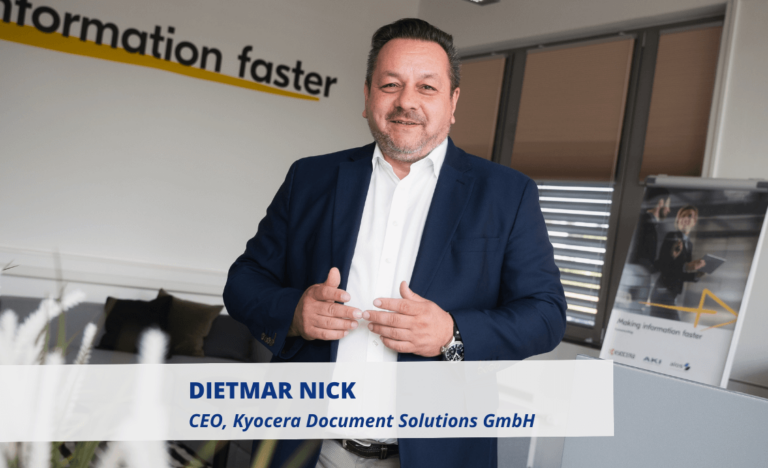Strategic planning expert, Francis Fung, shares invaluable insights for managers drowning in a sea of responsibilities.
It’s 8:30 am and your calendar is already double booked. You gulp down some coffee while plowing through yesterday’s 137 unread emails, firing off replies between sips. Meetings blur by without progress as you dash from one commitment to another. By lunch, your to-do list has exploded with new crises and your team keeps popping by with questions you barely have time to answer. You haven’t touched your actual priorities in days despite working non-stop. Sounds familiar?
It is easy to get overwhelmed as a manager. Worry not, though, because you’re not alone – overload and distraction are hallmarks of management today. Despite long hours, too many leaders just bob along reactively, feeling constantly behind and hoping problems resolve themselves.
Francis Fung, a strategic planning and digital marketing expert in Tokyo, has run his own agency, Sloane Japan, for over five years. After 20 years in business, he finds that young students in their early-to-mid-twenties often ask him questions whose answers he wished he knew in his youth. Dealing with overwhelm isn’t new for him – and he’s learned how to avoid its most-common pitfalls.
“Overwhelm for managers leads to a tunnel vision, just getting through the day and past the tasks and issues right now,” says Francis. “That’s why many managers feel overwhelmed. They feel that as managers and leaders they need to fix everything, and everything is on them.”
He shares his top advice for handling managerial overwhelm, in a candid chat with GLOBIS.
Pay attention to how you communicate
With their eyes perpetually fixed on fighting fires as they come, managers can often overlook the importance of communication. Frequent check-ins and reminders of overarching goals are vital.
“What I mean by ‘communication’ is the lack of clear and effective communication with team members because there’s no time,” says Francis. “We’re so overwhelmed and busy putting out fires that there’s no time to talk properly, to give clear instructions on what needs to be done, and who is doing what. Here it is important to ask yourself: as a manager and as a leader, what’s your role?”
“…you may seem unapproachable, like you have a “Do Not Disturb” sign hanging above you.”
Maintaining your clarity and composure is key – if your sense of overwhelm translates into you appearing too busy to talk to your employees, you may seem unapproachable, like you have a “Do Not Disturb” sign hanging above you.
“Because you seem unapproachable and busy, it’s hard to tell if things are going right or wrong because people cannot come and talk to you. If you’re overwhelmed and you’re not asking for updates or feedback on what’s happening, in the long run – things are going to take more time to fix,” notes Francis.
Poor communication breeds low morale and inefficiency. The tunnel vision that comes with overload means teams emulate stressed managers rather than relaxed, collaborative leaders. “If that’s how a team acts and feels, not only does that impact morale, but also efficiency and helpfulness,” Francis says. “It’s important that you are transparent and candid in your communications.”
So how do you communicate effectively amidst overwhelm? Francis suggests regular check-ins.
“Whether those are daily stand ups, email updates, is completely up to you. Personally, I prefer it when everyone joins me and I hear their voice and have their attendance. It’s always better than notes or Slack messages because those can always be misunderstood or misinterpreted,” he says.
This makes it easy for employees to have their follow-up questions answered, and for everyone else to hear and absorb that information.
But don’t fall into the trap of calling meetings that take longer than promised. Make sure to keep meetings short and punctual. “If you set a meeting for ten minutes, make sure it [lasts] 10 minutes,” advises Francis.
The Eisenhower Matrix for task prioritization
In times of overwhelm, reactive management often takes the place of proactive leadership. So how do some leaders stay centered amidst it all?
“You must have a clear vision and set goals. It is all about your vision, mission and purpose which sets the direction to which your whole team or your tasks are going towards,” Francis stresses.
Treat that purpose like a “North Star” you want to align yourself with.
“The only way you’re going to know what to focus on when extra requests come flooding in is by seeing if those things will help you reach your goals and will propel you towards your vision,” Francis says.
It may help to keep the “90 percent rule” in mind, from Greg McKeown’s bestseller book on personal development, Essentialism: The Disciplined Pursuit of Less.
“As you evaluate an option, think about the single most important criterion for that decision, and then simply give the option a score between 0 and 100. If you rate it any lower than 90 percent, then automatically change the rating to 0 and simply reject it.”
Francis suggests a less severe decision framework – the Eisenhower Matrix, named after the US president who oversaw the chaotic post-war years using a single four-quadrant decision matrix: Urgent and important, urgent and not important, important but not urgent, and not important, not urgent.

In a nutshell, by segmenting tasks as urgent/not urgent and important/not important, managers can identify activities needing immediate attention versus those that can be scheduled or delegated.
Francis also recommends the following tools and techniques to help you prioritize what needs to be done.
- Time blocking: Divide your day into blocks of time, and set a goal to accomplish a specific task or group of tasks in each block. This gives you a concrete schedule you can follow.
- The Pomodoro technique: Pick a task and set a 25-minute timer for it. Once time’s up, take a 5-minute break. Then start the timer again. Every four ‘pomodoros’, take a longer break (up to 30 minutes) to unwind.
- Three tasks to rule them all: Identify three key tasks that would make your day feel “valuable, productive and successful. Do them.
- Know your vision: You must have a clear vision and set goals, emphasizes Francis. “That is the way to avoid becoming overwhelmed: by knowing what you must focus on to reach those milestones to head towards your vision and mission,” he says.
When emails, requests and distractions pile in, with all of them claiming to be urgent and important, an effective leader must be able to sort and identify what is impactful and valuable – by seeing if those things will help you reach your goals and propel you towards your vision.
“It is all about your vision, mission and kokorozashi (purpose), which sets the direction to which your whole team or your tasks are going towards,” Francis says.
Do you need help identifying your vision? Check out our article on kokorozashi – your personal vision that unifies your passions and skills towards a goal.
Eat that frog (or do the dishes)
“Once you have your Eisenhower matrix, a clear idea of what you’re doing, your goals, time blocking and pomodoro technique, and your top three tasks written down, the only other thing is mindset,” says Francis.
Sometimes, you may not feel like doing certain tasks, big or small, because ultimately, you’re still a person with thoughts, feelings and moods.
“Once you have your tasks set out ahead of you – you have to do them without thinking. If you know you need to do it, put your feelings aside and just go do it. Many people use the ‘dishwashing’ analogy for this. Imagine you have a sink full of dishes. You need some dishes to eat with, but you don’t feel like it. Here, don’t even think or feel. Just move and start washing,” says Francis.
In a nutshell
By deploying prioritization frameworks, blocking distraction, and keeping communication flowing, managers can transcend the chaos. Clarity of vision and goals is crucial for parsing what truly requires focus. The rest is just noise.
For more insights from Francis Fung, check out his YouTube channel, “Lemons into Helicopters“, where he transforms challenges into soaring opportunities.








